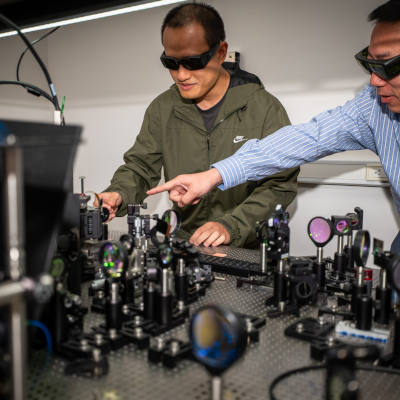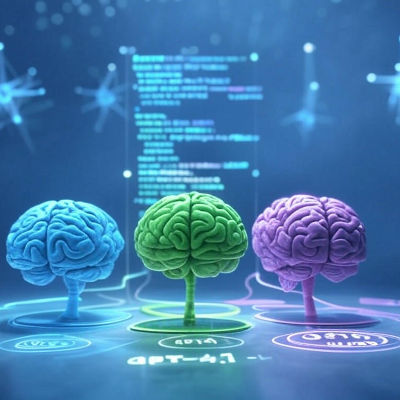Big data and AI will power autonomous robot scientists
Nov. 01, 2024.
2 mins. read.
4 Interactions
Science is moving to a new way of data-intensive scientific discovery, where autonomous AI does much of the work.
Scientists at the Institute of Tibetan Plateau Research of the Chinese Academy of Sciences are studying how big data and artificial intelligence (AI) are changing the way science works.
Scientists used to focus on finding out why things happen (causation), but now, with so much data, they often look at how things relate to each other (correlation).
In a paper published in Science Bulletin, Xin Li and Yanlong Guo explain how science is moving from being just about looking at data to a new way of data-intensive scientific discovery, where AI does much of the work.
The scientists analyze the full process of science, like watching things happen (observation), figuring out what the data means (data analysis), coming up with ideas (hypothesis generation), guessing what will happen next (prediction), checking if those guesses are right (hypothesis testing), and making big ideas about how things work (theorization). They say that AI tools help and improve the usual science methods, but don’t take over completely.
Totally new science
Li and Guo believe that with the growth in AI, “robot scientists” will become real soon. Robot scientists would watch things, analyze data, think of new ideas, test these ideas, and even come up with new theories without humans doing much.
Future robot scientists could use lots of sensors to watch the world, analyze what they see, make guesses about how things work, test those guesses, and then come up with new theories, all on their own.
Li and Guo underline that AI will make science faster and more automated, but it’s important that AI’s work is clear, makes sense, and can be trusted. While old ways of doing science are still good, using big data and AI makes everything better and quicker.
Robot scientists, with their ability to process huge amounts of information and think in new ways, could do science in ways we can’t even imagine now. Li and Guo envision how AI robots can go from just helping scientists to being scientists themselves, exploring new areas of knowledge.
We are facing, Li and Guo conclude, “a totally new science realm in which everything is changing or has changed.” In the new science process, “correlation supersedes causation.”
Let us know your thoughts! Sign up for a Mindplex account now, join our Telegram, or follow us on Twitter.


.png)

.png)


.png)






2 Comments
2 thoughts on “Big data and AI will power autonomous robot scientists”
AI's growing role in science is reshaping traditional research methods.
🟨 😴 😡 ❌ 🤮 💩
Big Data and AI driving autonomous robot scientists is an exciting leap toward faster discoveries and a new era of innovation in science!
🟨 😴 😡 ❌ 🤮 💩